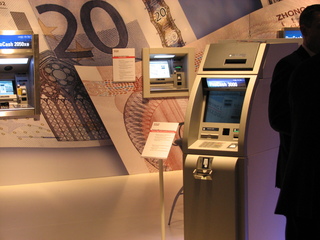The central bank governor is warning that the euro is not the cure for all Poland's ills
Published:
19 January 2005 y., Wednesday
The central bank governor Leszek Balcerowicz is warning that the euro is not the cure for all Poland's ills.
Leszek Balcerowicz believes the government should focus on reforms to yield long-term economic growth, rather than rushing to join the single currency.
"I never said that Poland should enter [the eurozone] at any cost. I said the best strategy is to fulfill conditions for euro entry in a rapid and sustained way," said Balcerowicz, while attending a meeting of central bank governors last week. "The process of EU enlargement was conducive to reforms. The idea of euro entry should be a similar incentive."
Balcerowicz has frequently said that eurozone entry is a political, rather than an economic issue, and that taxes and spending are currently too high for single-currency membership. He also said that tougher reforms were necessary to free Poland from the shackles of long-term high unemployment. In the 1990s, his economic treatments helped Poland recover from the collapse of communism.
"It will pay for Poland to undergo fiscal consolidation," he said. "Unemployment in Poland is not due to over-excessive market-oriented reforms. All of the reasons are structural. There has been some labor market liberalization but I think we need much more decisive action."
Despite his comments, the Civic Platform (PO) party, which is expected to win the next general election, says eurozone entry by 2009 will be a key objective for the party. "Our government will have the strategic goal of adopting the euro by 2008 or 2009. We will do everything to make sure it happens," said Zbigniew Chlebowski, deputy head of the Platform's parliamentary group.
Chlebowski also hinted at the future government's economic policy plans, saying major reform initiatives-such as its flat-tax proposals-would be launched at the start of 2007, not in 2006 as earlier signaled. He also said that limiting the budget deficit in 2006 would be difficult because of the outgoing government's spending promises but that fiscal policy would tighten from 2007.
Šaltinis:
wbj.pl
Copying, publishing, announcing any information from the News.lt portal without written permission of News.lt editorial office is prohibited.
The most popular articles
 Business to get a break under streamlined EU VAT rules.
more »
Business to get a break under streamlined EU VAT rules.
more »
 Thales UK`s naval business has yesterday signed a major sub-contract with Finning (UK) Ltd for the supply of propulsion engines and machinery for its new Lithuanian warship reactivation programme.
more »
Thales UK`s naval business has yesterday signed a major sub-contract with Finning (UK) Ltd for the supply of propulsion engines and machinery for its new Lithuanian warship reactivation programme.
more »
 The EU Budget 2009 provides more money for growth, the environment, jobs, research and food aid for developing countries.
more »
The EU Budget 2009 provides more money for growth, the environment, jobs, research and food aid for developing countries.
more »
 On day one of the World Economic Forum in Davos, the mood of this traditionally bullish event -- pure gloom.
more »
On day one of the World Economic Forum in Davos, the mood of this traditionally bullish event -- pure gloom.
more »
 In December 2008 against December 2007 the turnover of retail trade enterprises decreased by 8.8 per cent.
more »
In December 2008 against December 2007 the turnover of retail trade enterprises decreased by 8.8 per cent.
more »
 Mexican financial institution Banco Santander has awarded Wincor Nixdorf AG a contract to service all 4,000 of its ATMs installed in Mexico.
more »
Mexican financial institution Banco Santander has awarded Wincor Nixdorf AG a contract to service all 4,000 of its ATMs installed in Mexico.
more »
 Wincor Nixdorf AG spent much of its time at this year's Wincor World demonstrating how Wincor Nixdorf can support financial institutions and retailers through innovation.
more »
Wincor Nixdorf AG spent much of its time at this year's Wincor World demonstrating how Wincor Nixdorf can support financial institutions and retailers through innovation.
more »
 South Korea may be feeling the chill wind of recession but the country's lucrative gambling industry is cashing in.
more »
South Korea may be feeling the chill wind of recession but the country's lucrative gambling industry is cashing in.
more »
 Modest revenue growth despite difficult economy; announces cost management initiatives.
more »
Modest revenue growth despite difficult economy; announces cost management initiatives.
more »
 Tens of thousands of export firms on China's seaboard have closed due to falling demand in major European and North American markets.
more »
Tens of thousands of export firms on China's seaboard have closed due to falling demand in major European and North American markets.
more »